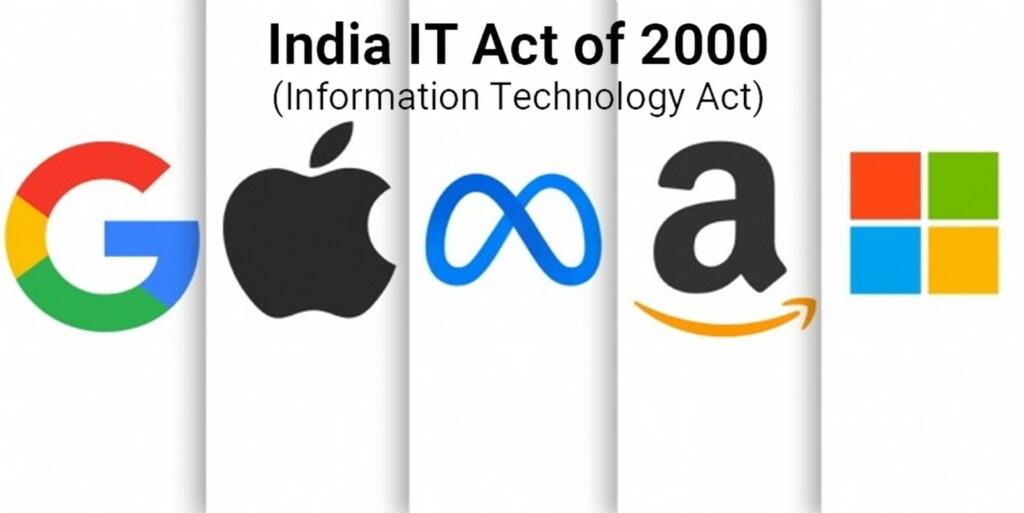For the last few years, few buzzwords around Big Tech have been common in Indian power corridors. Big Tech is evil. Big tech is corrupt. They invade people’s privacy. Big Tech interferes in the electoral process…The list is endless. Despite that, Big Tech keeps expanding its wings in India. The reason is that the Indian IT Act has failed to rein them in.
Good and bad of Indian IT Act, 2000
2 decades have proven not enough for the Indian legal system to control the excesses of the Internet. The most cliched excuse is that the Internet is a continuously evolving domain and therefore the democratic system fails to catch up with it. The problem with this kind of reasoning is that, it absolves lawmakers of their responsibility.
Rarely would one acknowledge that they failed to understand the tech-boom of Silicon Valley in the 90s. The pace at which the Internet exploded, leading to the rusting of the dotcom bubble, demanded a law which inherits the hereditary character of the Indian Constitution. In other words, the Indian IT Act 2000 should have been a well-balanced mix of rigidity and flexibility.
That is not to say that the act has totally failed. It has its fair share of success regarding digitalisation of the documentation process. Recognition of digital contracts and signatures as valid counterparts of their offline domain are few key changes making it easier for the populace to adapt to the Internet.
Similarly, the Indian IT Act provides for explicit guidelines regarding adjudicating authority. Ultimately, the IT Act brought in few much-needed changes in other existing laws as well. It also had its impact on the Prevention of Money Laundering Act, 2002, introduced after the Indian IT Act.
Big Tech still out of reach
Where the much famous act has failed is controlling the excess of Big Tech. There have been many times when localities have been at risk of violence due to failure by Big Tech to filter out good and bad information. In those circumstances, other than blindly following normal government orders, Big Tech information disseminating giants had no other option. They do not even check for the implications of the order. These companies just do not want to get in legal trouble, presumably due to their big dirty closets and just go ahead with the order.
The problem is that the government is not always right, just like these companies. But the companies enjoy an astounding degree of legal immunity. For instance, Pinterest, a mid-level successful social media app does not come under the ambit of Indian IT Act, because it does not have an India office. Even those companies who have their offices in India, but headquartered outside are subject to loosely worded sections of the IT Act.
Also Read: BYJU’s with its border line extortion tactics invited the wrath of NCPCR
Structural flaws in existing act
You may be surprised to know that under the Indian IT Act, WhatsApp, Instagram, Facebook, Twitter, Myntra, Amazon, Flipkart, Search engines and cloud service providers are classified as Intermediary. Section 2(1)(w) of IT Act loosely defines Intermediary as a platform which receives, stores or transmits data on behalf of others. To put it simply, legally they are tractor drivers who carry bricks from chimneys to households.
You can hold that tractor driver guilty only when you have enough evidence that he or she has been selling your product to some other person. Similarly, under Section 79(3) of the act, if these companies have “conspired or abetted or aided or induced” for an illegal act, only then can anyone could drag them to Court. Additionally, they are also required to remove content or disable access to information held as detrimental to public interest by the government.
Legal immunity must be curtailed
That’s it. These are the only guidelines which they have to adhere to under IT Act. On the other hand, if these companies carry on normal day to day functions, no matter what they do, they are exempt. All they have to do is show the government that they followed due diligence, which is not an easy task.
The fact still remains that these companies work on the Internet but their domains of operations are different, e.g., social media, e-commerce and so on. With new IT rules in place and proposed Digital India bill, the government has tried to change things around. But even the draft bill has been subjected to various chops and changes in the last few years.
It is yet to be seen when individual rights of citizens will supersede that of commercial interests of these companies.
Support TFI:
Support us to strengthen the ‘Right’ ideology of cultural nationalism by purchasing the best quality garments from TFI-STORE.COM
Also Watch:
https://www.youtube.com/watch?v=6uQft0eiVUI
